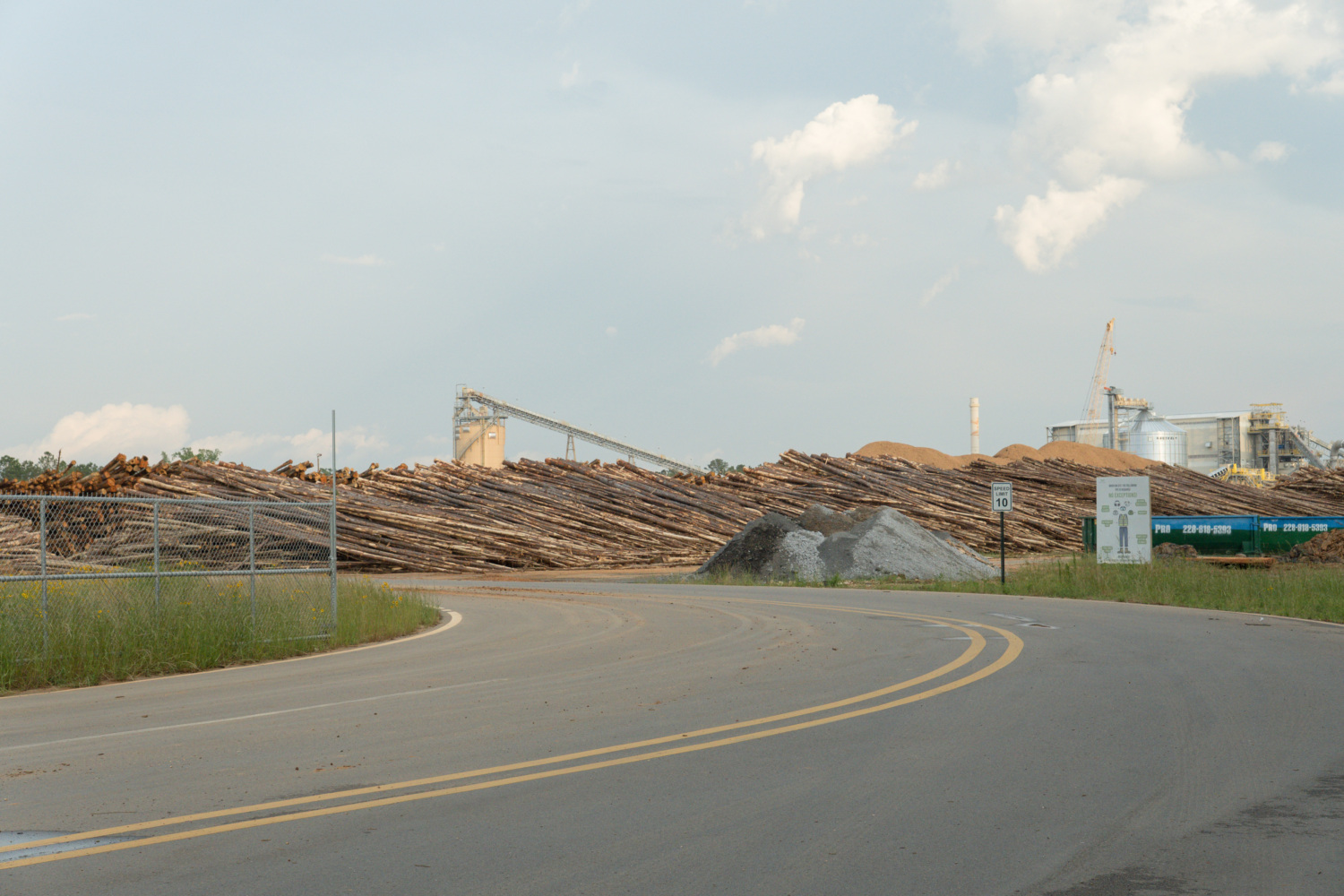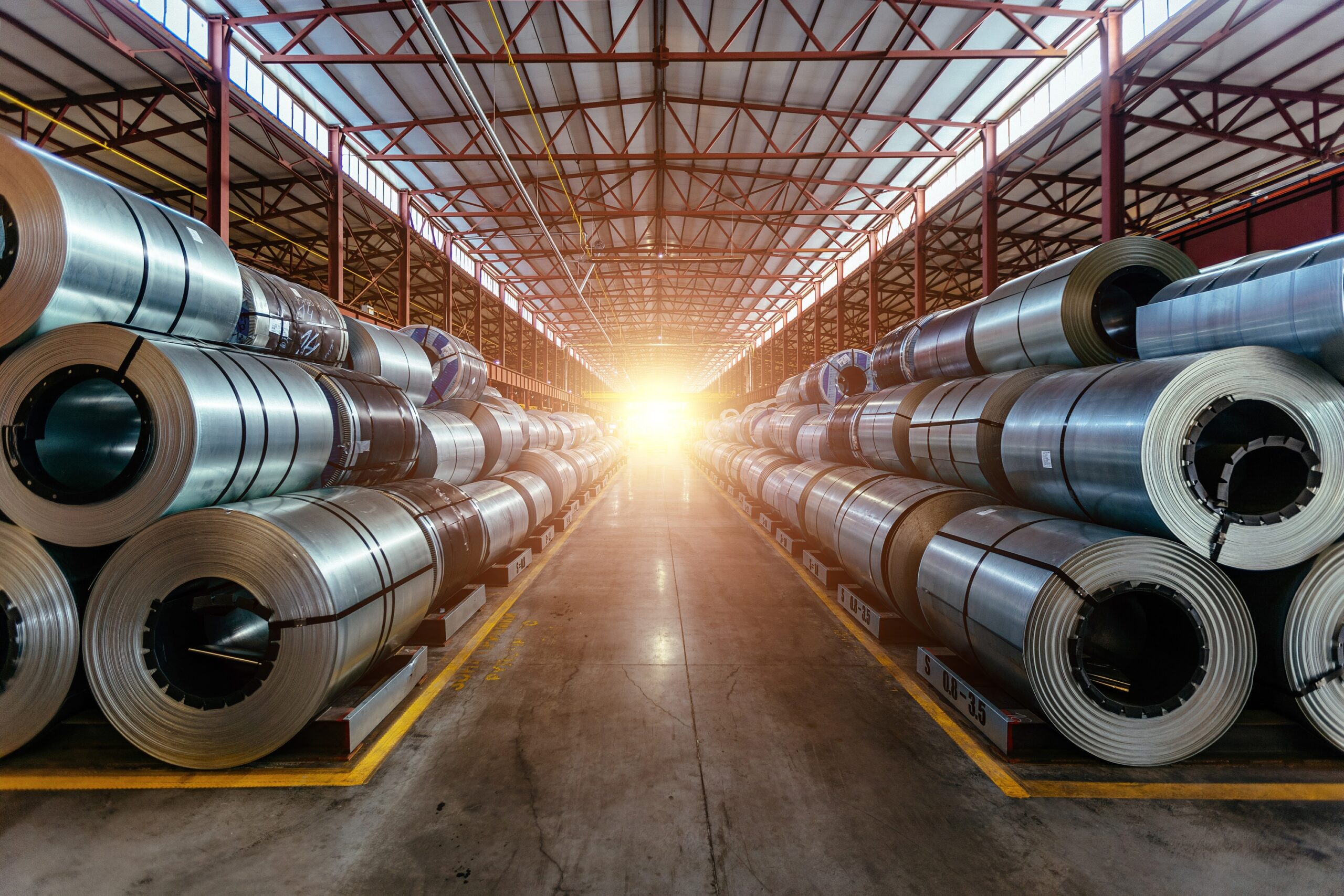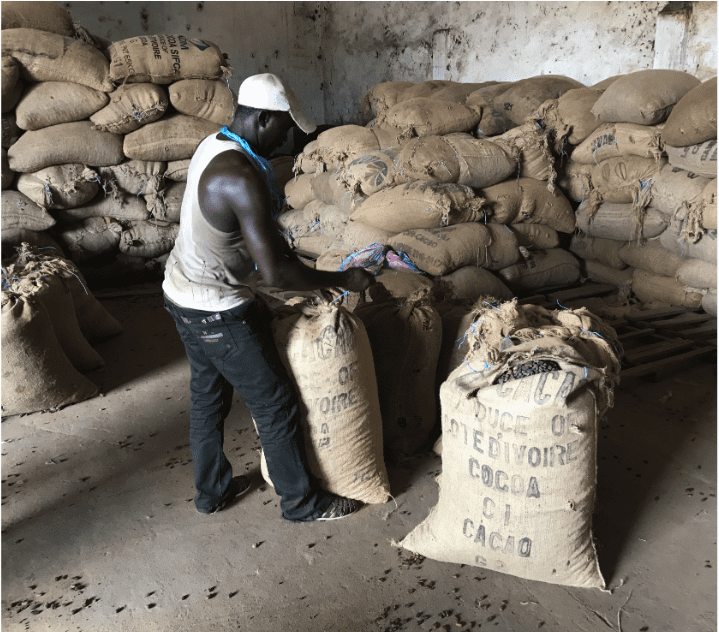
Companies Support Higher Cocoa Prices for Farmers

Companies Support Higher Cocoa Prices for Farmers
Mighty Earth collected statements from industry with varying level of support for the much-needed price increase for cocoa to protect farmers. While we do not in any way endorse these statements, they serve to debunk the notion that industry will not support a price increase.
We call on companies which have yet to publicly commit to paying a better price – such as Nestle, Sucden, Fuji Oils, and Pladis – to do so forthwith.
We hope this encourages other producer countries to set a price floor, like Cameroon, Nigeria, Indonesia, Ecuador, Brazil, and Peru. We ask all producer countries’ cocoa regulatory bodes to commit to ensuring all cocoa farmers earn a living income, worldwide.
Efforts must not be limited to supporting Côte d’Ivoire and Ghana but must aim at ensuring a minimum price for cocoa farmers across the globe.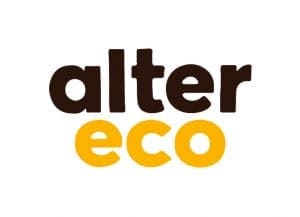 Alter Eco: “Alter Eco fully supports the efforts of the governments of Ghana and Cote d’Ivoire to increase the price of cocoa. We in fact would support them moving beyond $2,700 FOB to the price necessary to guarantee cocoa farmers a living income. Indeed, we also call on other cocoa producing countries to do the same. Alter Eco sources amongst others from Ecuador and we would warmly welcome any Ecuadorean move to match the Ivorian and Ghanaian courageous initiative to improve farmer livelihoods. We would support a global floor price. Our preference would be for that floor price to go directly into the pockets of famers, with transparency and traceability to ensure those who need it most are receiving this improved price. Moreover all our cocoa is deforestation-free and all of our volumes are heading towards agroforestry – as we are aware that a commodity price increase can trigger deforestation, so we call on all governments and companies supporting a floor price to simultaneously crack down on deforestation in their supply chains and embrace robust agroforestry everywhere. Let’s welcome the positive developments in West Africa and look towards all companies and producer countries to move the positive agenda forward rapidly.”[vc_separator sep_color=”color-205066″ el_width=”25%”]
Alter Eco: “Alter Eco fully supports the efforts of the governments of Ghana and Cote d’Ivoire to increase the price of cocoa. We in fact would support them moving beyond $2,700 FOB to the price necessary to guarantee cocoa farmers a living income. Indeed, we also call on other cocoa producing countries to do the same. Alter Eco sources amongst others from Ecuador and we would warmly welcome any Ecuadorean move to match the Ivorian and Ghanaian courageous initiative to improve farmer livelihoods. We would support a global floor price. Our preference would be for that floor price to go directly into the pockets of famers, with transparency and traceability to ensure those who need it most are receiving this improved price. Moreover all our cocoa is deforestation-free and all of our volumes are heading towards agroforestry – as we are aware that a commodity price increase can trigger deforestation, so we call on all governments and companies supporting a floor price to simultaneously crack down on deforestation in their supply chains and embrace robust agroforestry everywhere. Let’s welcome the positive developments in West Africa and look towards all companies and producer countries to move the positive agenda forward rapidly.”[vc_separator sep_color=”color-205066″ el_width=”25%”]
 Barry Callebaut: “It is the execution on this topic, which matters tremendously. It is a fact that the floor price will be implemented by the Ghanaian and Ivorian government. We agree to that principle, but next to the opportunities there are risks. The Barry Callebaut statement is a reflection of the conditions that have to be fulfilled in order for the floor price to have the intended results for farmers, and not lead to further deforestation.” “As the biggest buyer of cocoa in the world we welcome the initiative of the Ivory Coast and Ghana governments to support cocoa farmer income. We are therefore already working with the government and other companies to have a smooth implementation of the living income differential. We remain committed to continue to lead on sustainability as defined by our Forever Chocolate objectives and this does not change, if anything continues to gather momentum. All this does not preclude the fact that in the living income differential discussions there has been little space to embrace much needed discussions on some potential risks highlighted on sustainability. This does not diminish our commitment to sustainability but our responsibility as a sustainable operator focused on impact is to highlight challenges of a changing environment.”
Barry Callebaut: “It is the execution on this topic, which matters tremendously. It is a fact that the floor price will be implemented by the Ghanaian and Ivorian government. We agree to that principle, but next to the opportunities there are risks. The Barry Callebaut statement is a reflection of the conditions that have to be fulfilled in order for the floor price to have the intended results for farmers, and not lead to further deforestation.” “As the biggest buyer of cocoa in the world we welcome the initiative of the Ivory Coast and Ghana governments to support cocoa farmer income. We are therefore already working with the government and other companies to have a smooth implementation of the living income differential. We remain committed to continue to lead on sustainability as defined by our Forever Chocolate objectives and this does not change, if anything continues to gather momentum. All this does not preclude the fact that in the living income differential discussions there has been little space to embrace much needed discussions on some potential risks highlighted on sustainability. This does not diminish our commitment to sustainability but our responsibility as a sustainable operator focused on impact is to highlight challenges of a changing environment.”
[vc_separator sep_color=”color-205066″ el_width=”25%”]
Blommer: “Recently, the Governments of Ghana and Cote d’Ivoire engaged the cocoa and chocolate industry in a series of meetings to discuss options around new pricing structures aimed at providing cocoa farmers greater value for their cocoa. Blommer believes that cocoa farmers should earn sufficient income to ensure a decent standard of living. Through our Sustainable Origins platform we are working closely with producing governments, farmer organizations, and other development partners on many initiatives to catalyze the transformation of traditional farms into diversified, sustainable, and profitable businesses. These efforts are also necessary to boost farmer income but they may not be enough without increased remuneration to farmers for their crop. We therefore support the overall goal of the governments of Côte d’Ivoire and Ghana to increase farmer remuneration. Developing new and innovative methods to achieve this should remain a priority while maintaining a continued focus on the critical work being done under the industry’s sustainability activities. We look forward to our continued partnership and collaboration with Côte d’Ivoire and Ghana to ensure a sustainable and thriving cocoa sector – where farmers prosper, cocoa-growing communities are empowered, human rights are respected, and the environment is conserved.”[vc_separator sep_color=”color-205066″ el_width=”25%”]
Fuji Oil: “Blommer’s statement on this subject covers not only Blommer but also the whole FUJI OIL Group.”[vc_separator sep_color=”color-205066″ el_width=”25%”] Cargill: “Cargill s’engage de manière durable auprès des agriculteurs et de gouvernements ivoiriens et ghanéens. Chez Cargill (www.Cargill.com), nous partageons l’ambition, exprimée par les gouvernements de la Côte d’Ivoire et du Ghana, d’améliorer le revenu des producteurs de cacao et d’assurer la durabilité à long terme du secteur. Nous saluons la volonté des deux gouvernements, d’établir un prix plancher minimum pour les fèves de cacao et affirmons notre engagement à faire davantage pour veiller à ce que cette mesure permette d’accroitre de façon durable les revenus des agriculteurs. Nous sommes impatients de collaborer étroitement avec le Conseil Café Cacao et le Cocobod afin de réaliser des changements positifs fondamentaux dans le secteur du cacao.” [Unofficial translation: Cargill is making a long-term commitment to Ivorian and Ghanaian farmers and governments. At Cargill (www.Cargill.com), we share the ambition of the governments of Côte d’Ivoire and Ghana to improve the income of cocoa farmers and ensure the long-term sustainability of the sector. We applaud the willingness of both governments to set a minimum floor price for cocoa beans and affirm our commitment to do more to ensure that this measure leads to sustainable increases in farmers’ incomes. We look forward to working closely with the Coffee Cocoa Council and Cocobod to achieve fundamental positive changes in the cocoa sector.][vc_separator sep_color=”color-205066″ el_width=”25%”]
Cargill: “Cargill s’engage de manière durable auprès des agriculteurs et de gouvernements ivoiriens et ghanéens. Chez Cargill (www.Cargill.com), nous partageons l’ambition, exprimée par les gouvernements de la Côte d’Ivoire et du Ghana, d’améliorer le revenu des producteurs de cacao et d’assurer la durabilité à long terme du secteur. Nous saluons la volonté des deux gouvernements, d’établir un prix plancher minimum pour les fèves de cacao et affirmons notre engagement à faire davantage pour veiller à ce que cette mesure permette d’accroitre de façon durable les revenus des agriculteurs. Nous sommes impatients de collaborer étroitement avec le Conseil Café Cacao et le Cocobod afin de réaliser des changements positifs fondamentaux dans le secteur du cacao.” [Unofficial translation: Cargill is making a long-term commitment to Ivorian and Ghanaian farmers and governments. At Cargill (www.Cargill.com), we share the ambition of the governments of Côte d’Ivoire and Ghana to improve the income of cocoa farmers and ensure the long-term sustainability of the sector. We applaud the willingness of both governments to set a minimum floor price for cocoa beans and affirm our commitment to do more to ensure that this measure leads to sustainable increases in farmers’ incomes. We look forward to working closely with the Coffee Cocoa Council and Cocobod to achieve fundamental positive changes in the cocoa sector.][vc_separator sep_color=”color-205066″ el_width=”25%”]
ECOM: “ECOM welcomes any initiative working towards ensuring a decent standard of living for cocoa farmers. We look forward to our continued discussions with the Conseil Café Cacao of Côte d’Ivoire, Cocobod of Ghana and other industry players to ensure a sustainable and thriving cocoa sector. We are currently awaiting additional information that will be shared by the two governments regarding details of the mechanism.”[vc_separator sep_color=”color-205066″ el_width=”25%”] Fair Trade: on the 1st of October 2019, Fairtrade is raising its Minimum Price for conventional cocoa to $2,400 per metric ton, and is raising its Premium for Fairtrade cocoa to $240 per metric ton. For organic cocoa, the Fairtrade Minimum Price will be $2,700. As of this writing, and Unlike UTZ/Rainforest Alliance, Fairtrade is the only certification scheme with a global mandatory minimum price (although it still falls short of the Fair Trade Living Income Reference Price). When the market price rises higher than the Fairtrade Minimum Price, producers will receive market prices.[vc_separator sep_color=”color-205066″ el_width=”25%”]
Fair Trade: on the 1st of October 2019, Fairtrade is raising its Minimum Price for conventional cocoa to $2,400 per metric ton, and is raising its Premium for Fairtrade cocoa to $240 per metric ton. For organic cocoa, the Fairtrade Minimum Price will be $2,700. As of this writing, and Unlike UTZ/Rainforest Alliance, Fairtrade is the only certification scheme with a global mandatory minimum price (although it still falls short of the Fair Trade Living Income Reference Price). When the market price rises higher than the Fairtrade Minimum Price, producers will receive market prices.[vc_separator sep_color=”color-205066″ el_width=”25%”] Ferrero: “Ferrero welcomes any efforts of the governments of Ivory Coast and Ghana to relieve cocoa farmer poverty as we believe that cocoa farmers should earn sufficient income to ensure a decent standard of living. Any efforts should also tackle the broader development challenges in cocoa growing communities, including child labor and deforestation.”[vc_separator sep_color=”color-205066″ el_width=”25%”]
Ferrero: “Ferrero welcomes any efforts of the governments of Ivory Coast and Ghana to relieve cocoa farmer poverty as we believe that cocoa farmers should earn sufficient income to ensure a decent standard of living. Any efforts should also tackle the broader development challenges in cocoa growing communities, including child labor and deforestation.”[vc_separator sep_color=”color-205066″ el_width=”25%”] Godiva: “GODIVA supports any efforts to lift cocoa growing communities in Cote d’Ivoire and Ghana out of poverty, and protect the future of cocoa farming and farmers.”[vc_separator sep_color=”color-205066″ el_width=”25%”]
Godiva: “GODIVA supports any efforts to lift cocoa growing communities in Cote d’Ivoire and Ghana out of poverty, and protect the future of cocoa farming and farmers.”[vc_separator sep_color=”color-205066″ el_width=”25%”] Halba: “We fully support the new floor price announced by Ghana and Côte d’Ivoire. The payment of such a price is already a great step forward.” We would appreciate it very much, if at least 70 – 80% of that price would reach the farmer.[vc_separator sep_color=”color-205066″ el_width=”25%”]
Halba: “We fully support the new floor price announced by Ghana and Côte d’Ivoire. The payment of such a price is already a great step forward.” We would appreciate it very much, if at least 70 – 80% of that price would reach the farmer.[vc_separator sep_color=”color-205066″ el_width=”25%”] Hershey: “At Hershey, we have long supported initiatives that improve the livelihoods of farmers. Cocoa farmers should be able to support their families and earn a decent standard of living and we support the goal of raising farmer incomes. Hershey, along with the entire industry, will be working with these governments to further understand their proposals to increase farmer incomes. Any plans would need to be implemented carefully to ensure they do not create imbalances in the long-term supply of cocoa that could result in surpluses and destabilize the market, which ultimately hurts farmers. The plans also need to guard against new production on protected forest land. We want to work together with the governments to see an increased share of the global cocoa price transferred to farmers through the government-regulated farmgate price. These are complicated, but important issues. We look forward to joining with the rest of the industry to continue these discussions with the governments and other partners to improve the livelihoods of cocoa farmers and the sustainability of cocoa farming long into the future.”
Hershey: “At Hershey, we have long supported initiatives that improve the livelihoods of farmers. Cocoa farmers should be able to support their families and earn a decent standard of living and we support the goal of raising farmer incomes. Hershey, along with the entire industry, will be working with these governments to further understand their proposals to increase farmer incomes. Any plans would need to be implemented carefully to ensure they do not create imbalances in the long-term supply of cocoa that could result in surpluses and destabilize the market, which ultimately hurts farmers. The plans also need to guard against new production on protected forest land. We want to work together with the governments to see an increased share of the global cocoa price transferred to farmers through the government-regulated farmgate price. These are complicated, but important issues. We look forward to joining with the rest of the industry to continue these discussions with the governments and other partners to improve the livelihoods of cocoa farmers and the sustainability of cocoa farming long into the future.”
[vc_separator sep_color=”color-205066″ el_width=”25%”] Lindt & Sprüngli: “Our sustainable cocoa program – the Lindt & Sprüngli Farming Program – aims at decent and resilient livelihoods of todays and future cocoa farmers and their families. While increased farm gate prices are an important measure to improve livelihoods, we follow a holistic approach to increase the net-income of cocoa farming households delivering to us, which includes a sustainable intensification of cocoa cultivation, the creation of additional income sources, a stabilization of cash flow and secured income, as well as the improvement of community infrastructure. Especially Ghana is an important origin for us. We therefore support the Governments’ efforts to contribute to improved cocoa livelihoods, and will follow the developments closely.”[vc_separator sep_color=”color-205066″ el_width=”25%”]
Lindt & Sprüngli: “Our sustainable cocoa program – the Lindt & Sprüngli Farming Program – aims at decent and resilient livelihoods of todays and future cocoa farmers and their families. While increased farm gate prices are an important measure to improve livelihoods, we follow a holistic approach to increase the net-income of cocoa farming households delivering to us, which includes a sustainable intensification of cocoa cultivation, the creation of additional income sources, a stabilization of cash flow and secured income, as well as the improvement of community infrastructure. Especially Ghana is an important origin for us. We therefore support the Governments’ efforts to contribute to improved cocoa livelihoods, and will follow the developments closely.”[vc_separator sep_color=”color-205066″ el_width=”25%”] Mars: “U.S. food maker Mars Inc. supports a decision by Ivory Coast and Ghana to set a floor price for their cocoa exports, a senior executive told Reuters on Wednesday, becoming one of the first major chocolate companies to back the initiative. ‘We support moves by governments to intervene to achieve a higher price that leads to a sustainable increase paid to the farmer and is supported with governance to ensure there is no further expansion of land use to grow cocoa,’ Ament said. ‘Initiatives to boost productivity, improvements in social services and infrastructure, and exploration of alternative incomes are necessary, but they will likely not be enough without an increase in the price farmers receive for their crop,’ Ament said.”[vc_separator sep_color=”color-205066″ el_width=”25%”]
Mars: “U.S. food maker Mars Inc. supports a decision by Ivory Coast and Ghana to set a floor price for their cocoa exports, a senior executive told Reuters on Wednesday, becoming one of the first major chocolate companies to back the initiative. ‘We support moves by governments to intervene to achieve a higher price that leads to a sustainable increase paid to the farmer and is supported with governance to ensure there is no further expansion of land use to grow cocoa,’ Ament said. ‘Initiatives to boost productivity, improvements in social services and infrastructure, and exploration of alternative incomes are necessary, but they will likely not be enough without an increase in the price farmers receive for their crop,’ Ament said.”[vc_separator sep_color=”color-205066″ el_width=”25%”] Mondelez: “We believe cocoa farmers should earn sufficient income to provide a decent standard of living today as well as to safeguard the sustainable future livelihoods for the cocoa farmers of Côte d’Ivoire and Ghana. With Cocoa Life, our holistic cocoa sustainability program, we work on the ground, with the cocoa farmers and our partners to tackle the complex challenges that cocoa growing communities face. Partnerships are key to creating the right environment for lasting change. We welcome the Ghana and Cote d’Ivoire’s governments’ efforts to address cocoa farmer income through the Living Income Differential as an important building block to achieve a sustainable livelihood from cocoa. We also believe this is a unique opportunity to create the necessary partnerships to ensure the long-term beneficial effect of the new pricing approach and look forward to collaborating with both governments to ensure no further deforestation will take place and human rights will be protected. A sector-wide strategy with coordinated actions by all stakeholders of the value chain is needed to catalyze the transformation of cocoa farming into modern, sustainable, and profitable businesses that provide sustainable livelihoods for cocoa growing families.”[vc_separator sep_color=”color-205066″ el_width=”25%”]
Mondelez: “We believe cocoa farmers should earn sufficient income to provide a decent standard of living today as well as to safeguard the sustainable future livelihoods for the cocoa farmers of Côte d’Ivoire and Ghana. With Cocoa Life, our holistic cocoa sustainability program, we work on the ground, with the cocoa farmers and our partners to tackle the complex challenges that cocoa growing communities face. Partnerships are key to creating the right environment for lasting change. We welcome the Ghana and Cote d’Ivoire’s governments’ efforts to address cocoa farmer income through the Living Income Differential as an important building block to achieve a sustainable livelihood from cocoa. We also believe this is a unique opportunity to create the necessary partnerships to ensure the long-term beneficial effect of the new pricing approach and look forward to collaborating with both governments to ensure no further deforestation will take place and human rights will be protected. A sector-wide strategy with coordinated actions by all stakeholders of the value chain is needed to catalyze the transformation of cocoa farming into modern, sustainable, and profitable businesses that provide sustainable livelihoods for cocoa growing families.”[vc_separator sep_color=”color-205066″ el_width=”25%”] Olam: “Olam Cocoa is committed to improving the livelihoods of cocoa farmers and communities, and to preventing forest degradation. We share the ambition of the governments of Côte d’Ivoire and Ghana to establish a pricing structure which guarantees a minimum price for cocoa farmers, and strengthens progress towards a sustainable cocoa supply chain that improves farmer livelihoods and protects forests. You can see more of what we’re doing to tackle farmer poverty and its associated ills, in our last Cocoa Sustainability Report – as of the end of last year we had nearly 230,000 cocoa farmers enrolled in programmes to support their livelihoods, including 43,000 new farmers in 2018.”[vc_separator sep_color=”color-205066″ el_width=”25%”]
Olam: “Olam Cocoa is committed to improving the livelihoods of cocoa farmers and communities, and to preventing forest degradation. We share the ambition of the governments of Côte d’Ivoire and Ghana to establish a pricing structure which guarantees a minimum price for cocoa farmers, and strengthens progress towards a sustainable cocoa supply chain that improves farmer livelihoods and protects forests. You can see more of what we’re doing to tackle farmer poverty and its associated ills, in our last Cocoa Sustainability Report – as of the end of last year we had nearly 230,000 cocoa farmers enrolled in programmes to support their livelihoods, including 43,000 new farmers in 2018.”[vc_separator sep_color=”color-205066″ el_width=”25%”] Uncommon Cacao: “At Uncommon Cacao, we believe farmer prosperity is a key ingredient in good chocolate. Transparent, sustainable prices for both farmers and exporters that cover costs of production are an important factor in enabling producers to earn at least a living income from their cacao farm. We support country- and context-specific export price floors, as long as they are tied to transparent farmgate price floors, are based on impartial research and cross-sector collaboration, and seek to improve farmer prosperity. We encourage all cacao market actors to always consider these prices as floors and never ceilings. The price floor announced by Ghana and Cote d’Ivoire and the Living Income Differential are key steps towards creating better outcomes for farmers and the industry, but we still see this as just the beginning. Cacao farmer prosperity depends on the commitment of producers, governments, intermediaries and chocolate companies to pay more for cacao and catalyze broader systems change.”[vc_separator sep_color=”color-205066″ el_width=”25%”]
Uncommon Cacao: “At Uncommon Cacao, we believe farmer prosperity is a key ingredient in good chocolate. Transparent, sustainable prices for both farmers and exporters that cover costs of production are an important factor in enabling producers to earn at least a living income from their cacao farm. We support country- and context-specific export price floors, as long as they are tied to transparent farmgate price floors, are based on impartial research and cross-sector collaboration, and seek to improve farmer prosperity. We encourage all cacao market actors to always consider these prices as floors and never ceilings. The price floor announced by Ghana and Cote d’Ivoire and the Living Income Differential are key steps towards creating better outcomes for farmers and the industry, but we still see this as just the beginning. Cacao farmer prosperity depends on the commitment of producers, governments, intermediaries and chocolate companies to pay more for cacao and catalyze broader systems change.”[vc_separator sep_color=”color-205066″ el_width=”25%”]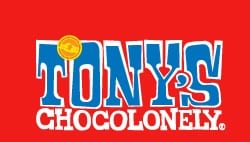 Tony’s Chocolonely: Tony’s Chocolonely exists to change the cocoa industry. Without paying a higher price, the chocolate industry will never solve issues in their supply chain and live up to their commitment in the Harkin Engel Protocol. Chocolate companies should be asked the simple question: How much profit are you willing to take, at the expense of a living income for farmers. Perpetuating extreme poverty, leads to modern slavery, illegal child labour and deforestation. It’s a matter of choice, as simple as that. Tony’s commits to more than just a minimum price. On top of the farmgate price and the Fairtrade premium, we pay an additional premium up to the living income reference price – the new industry benchmark. We pay this higher price as part of our 5 sourcing principles (higher price, strong farmers, productivity and diversification, long term commitments, 100% traceability). And we share our model, knowledge and network viawww.tonysopenchain.com. Tony’s Chocolonely exists to change the inequality in the system and we invite all others to join, cause only together we will make the whole chocolate industry 100% slavefree.
Tony’s Chocolonely: Tony’s Chocolonely exists to change the cocoa industry. Without paying a higher price, the chocolate industry will never solve issues in their supply chain and live up to their commitment in the Harkin Engel Protocol. Chocolate companies should be asked the simple question: How much profit are you willing to take, at the expense of a living income for farmers. Perpetuating extreme poverty, leads to modern slavery, illegal child labour and deforestation. It’s a matter of choice, as simple as that. Tony’s commits to more than just a minimum price. On top of the farmgate price and the Fairtrade premium, we pay an additional premium up to the living income reference price – the new industry benchmark. We pay this higher price as part of our 5 sourcing principles (higher price, strong farmers, productivity and diversification, long term commitments, 100% traceability). And we share our model, knowledge and network viawww.tonysopenchain.com. Tony’s Chocolonely exists to change the inequality in the system and we invite all others to join, cause only together we will make the whole chocolate industry 100% slavefree. Florence Pradier, secrétaire générale du syndicat français du chocolat: « Nous sommes d’accord pour réduire la pauvreté des planteurs, mais si nous mettons la main à la poche, c’est pour s’assurer qu’au moins 70 % des 2 600 dollars la tonne promis aillent aux planteurs ». [Translation: We agree to reduce the poverty of the planters, but if we put our hands in our pockets, it is to ensure that at least 70% of the $ 2,600 a tonne promised goes to the planters.]
Florence Pradier, secrétaire générale du syndicat français du chocolat: « Nous sommes d’accord pour réduire la pauvreté des planteurs, mais si nous mettons la main à la poche, c’est pour s’assurer qu’au moins 70 % des 2 600 dollars la tonne promis aillent aux planteurs ». [Translation: We agree to reduce the poverty of the planters, but if we put our hands in our pockets, it is to ensure that at least 70% of the $ 2,600 a tonne promised goes to the planters.]
[vc_separator sep_color=”color-205066″ el_width=”25%”] Cemoi: “Of course we support minimum price !” « Pour notre part, nous partageons l’avis des gouvernements de la Côte d’Ivoire et du Ghana selon lequel le prix du cacao est un facteur déterminant du revenu des planteurs. Nous partageons l’objectif d’une culture plus durable du cacao et soutenons la hausse des prix au planteur et cela va dans le sens de notre programme Transparence Cacao dont l’un des axes principaux est l’amélioration de la qualité de vie du planteur par une rémunération plus juste ». [Translation: For our part, we share the opinion of the governments of Côte d’Ivoire and Ghana that the price of cocoa is a determining factor in the income of farmers. We share the goal of a more sustainable cocoa crop and support the increase of prices to the planter. This is in line with where our program is headed, called Transparency Cocoa, of which a main focus is improving the quality of life of planters with fairer remuneration.][vc_separator sep_color=”color-205066″ el_width=”25%”]
Cemoi: “Of course we support minimum price !” « Pour notre part, nous partageons l’avis des gouvernements de la Côte d’Ivoire et du Ghana selon lequel le prix du cacao est un facteur déterminant du revenu des planteurs. Nous partageons l’objectif d’une culture plus durable du cacao et soutenons la hausse des prix au planteur et cela va dans le sens de notre programme Transparence Cacao dont l’un des axes principaux est l’amélioration de la qualité de vie du planteur par une rémunération plus juste ». [Translation: For our part, we share the opinion of the governments of Côte d’Ivoire and Ghana that the price of cocoa is a determining factor in the income of farmers. We share the goal of a more sustainable cocoa crop and support the increase of prices to the planter. This is in line with where our program is headed, called Transparency Cocoa, of which a main focus is improving the quality of life of planters with fairer remuneration.][vc_separator sep_color=”color-205066″ el_width=”25%”] Valhrona: “Valrhona welcomes the commitment of the Ivorian and Ghanaian governments to improve farmers’ income through the establishment of a floor price. We are keen for this this initiative to feed into a wider goal to improve the lives of farmers and their families. However, as time is of the essence, we are also taking action directly. It was unacceptable to us, for example, that farmers would see their incomes slashed as a result of the sudden drop in price on the global market in 2016-17, which is why ever since 2017 we have established a minimum guaranteed farmgate price of 1100 FCFA for our producers in Côte d’Ivoire. This represents approximately 51% more than the minimum price guaranteed by the Ivorian state. We continue to maintain all of our quality, traceability and community development premiums and to intensify our support to improve living conditions, access to education and training. This measure is a first step towards our goal to enable farming families to earn a living income in the 16 producing countries with which we have long-term partnerships. We continue our work to create a fair and sustainable cocoa sector and support any efforts towards achieving this. We as such welcome the Ivorian and Ghanaian governments initiative and look forward to future developments across the sector.”
Valhrona: “Valrhona welcomes the commitment of the Ivorian and Ghanaian governments to improve farmers’ income through the establishment of a floor price. We are keen for this this initiative to feed into a wider goal to improve the lives of farmers and their families. However, as time is of the essence, we are also taking action directly. It was unacceptable to us, for example, that farmers would see their incomes slashed as a result of the sudden drop in price on the global market in 2016-17, which is why ever since 2017 we have established a minimum guaranteed farmgate price of 1100 FCFA for our producers in Côte d’Ivoire. This represents approximately 51% more than the minimum price guaranteed by the Ivorian state. We continue to maintain all of our quality, traceability and community development premiums and to intensify our support to improve living conditions, access to education and training. This measure is a first step towards our goal to enable farming families to earn a living income in the 16 producing countries with which we have long-term partnerships. We continue our work to create a fair and sustainable cocoa sector and support any efforts towards achieving this. We as such welcome the Ivorian and Ghanaian governments initiative and look forward to future developments across the sector.”
 Sucden: “Sucden strongly supports programs that result in cocoa farmers receiving a fair price for their cocoa and greater incomes for their efforts. We implement direct assistance to farmers in Ghana and Côte d’Ivoire to achieve greater income from improved sustainable farming methods.
Sucden: “Sucden strongly supports programs that result in cocoa farmers receiving a fair price for their cocoa and greater incomes for their efforts. We implement direct assistance to farmers in Ghana and Côte d’Ivoire to achieve greater income from improved sustainable farming methods.
We have actively supported the implementation of the Living Income Differential initiative of the CCC and CMC by purchasing cocoa that includes the LID. We continue to support mechanisms that allow farmers a fair price and improve farmer incomes, while also preventing deforestation, forced and child labour.”
